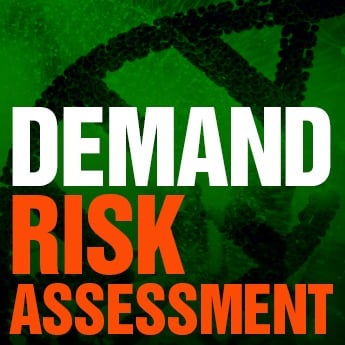FDA overlooked evidence of allergy potential and accepted deficient data say groups
This afternoon in Maryland at US Food and Drug Administration (FDA) hearings to decide on the safety of a genetically engineered (GE) salmon, a veterinary medicine committee will hear damning critiques of the science that was generated by the company AquaBounty and accepted by the FDA as supporting its preliminary conclusion of safety.
“The FDA is relying on woefully inadequate data. There is sloppy science, small sample sizes, and questionable practices,” said Dr. Michael Hansen, Senior Scientist at Consumers Union, who will testify today before the Veterinary Medicine Advisory Committee (VMAC). On September 3, the FDA released a document that summarizes the company’s food safety data and the FDA’s conclusions. “AquaBounty’s own data, although incomplete, do raise a potential serious human health issue – that of increased allergenicity,” said Hansen. VMAC could make a recommendation on the GE salmon to the FDA at the end of today’s meeting.
Leo Broderick of Prince Edward Island (PEI) and Vice-Chair of the Council of Canadians, is attending the hearings. “The FDA cannot approve this genetically engineered salmon if it listens at all to today’s testimony,” said Broderick. The company plans to produce all of the GE salmon eggs on PEI. The fish have been engineered to produce growth hormone throughout the year, rather than just for 3 months. The company claims that the GE fish grow to market size twice as fast as other farmed fish.
Among the many specific problems identified by Dr. Hansen, he argues that, “On the growth hormone question, two different studies were evaluated and both were deficient.” The first study of growth hormone levels examined fish that weighed just 2 ounces instead of using market-sized fish. The second study used market-sized fish but the sensitivity test method was so high that it did not detect growth hormone in any of the GE or non-GE sample fish. Yet the FDA concluded from these studies that there is “no biologically relevant difference” when it comes to the levels of growth hormone in the GE fish compared to the non-GE fish.
The company similarly used insensitive tests to look for levels of IGF-1, a hormone linked to a number of cancers. Additionally, the company did not examine food safety questions from the conditions under which the GE fish would be raised in Panama. “The data are too superficial and of insufficient scientific quality to warrant approval,” concluded Hansen.
“If the FDA approves the GE salmon in spite of today’s damning testimony, it will be a health safety scandal and will open the door to approval of other genetic engineered fish and animals based on equally bad science,” said Lucy Sharratt, Coordinator of the Canadian Biotechnology Action Network. “Canada’s regulations for GE animals and fish are a mess of patched up old regulations that were not created for this challenge. We’re aghast that Health Canada is getting ready to spend taxpayer’s money reviewing the safety of this GE salmon that no one wants and is actually already assessing a request to approve a GE pig for eating.” Health Canada is currently assessing the safety of a GE pig for human consumption, trademarked “Enviropig”, and the company AquaBounty says it will soon ask for approval of the GE salmon in Canada.
Leo Broderick, Council of Canadians (in Maryland) cell 902 394 2960; Dr. Michael Hansen, Consumers Union, cell 917 774 3801; Lucy Sharratt, Coordinator, Canadian Biotechnology Action Network, 613 241 2267 ext 6.






